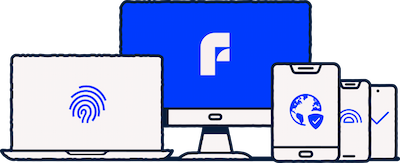Account takeover causes online identity theft, when criminals steal personal information stored in online accounts. With stolen accounts and information, hackers can for example buy goods with your credit card or take loans in your name. To take over your accounts, hackers need your password and username. Here are 5 ways they can steal them.
1. Stealing login credentials through data breaches
Billions of records of personal information are stolen in data breaches every year. The leaked passwords and usernames are often just what hackers need to commit account takeover. Because most people use the same login details on multiple accounts, hackers will try to access other online services with the same leaked passwords and usernames.
2. Breaking in with a computer-generated password
Hackers can break in by simply trying out different passwords to find the one you use. To speed up the process they use programs that can test tens of billions of passwords — in a second. This way any 8-character password can be discovered in approximately 1 hour and 15 minutes.
3. Phishing for login information
Criminals can also just ask victims for their login details. This is done through phishing scams, in which unsuspecting victims are lured into giving their data. Phishing attempts can be done through emails, SMS, scam websites, malicious phone applications, chat conversations, phone calls and so on.
4. Using malware and viruses to steal data
Malware and viruses can do multiple things. A typical function is stealing information from the victim’s device. Many viruses can record your keystrokes when you type in your passwords and others spy on your browser and hijack bank information. You can prevent this with antivirus software.
5. Spying on your internet traffic
Your internet traffic passes many servers before reaching a website. If someone on the route intercepts your traffic, they can see everything you do on the internet. This includes your passwords and usernames. Typically, these man-in-the-middle attacks are done through public Wi‑Fi networks or infected home internet routers. You can protect yourself with trustworthy VPN software.
)

